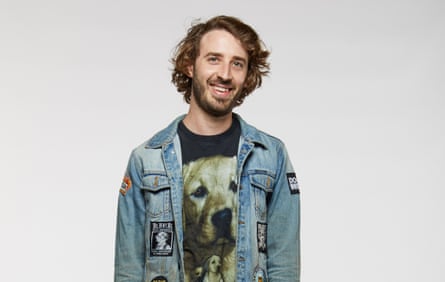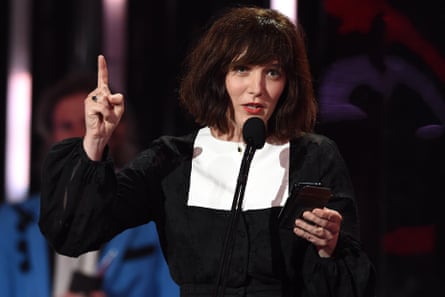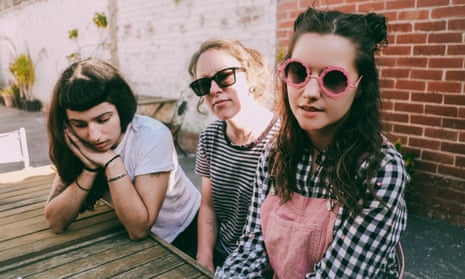For a long time, there’s been an understanding within the Australian music industry: the playlisting choices of Triple J can make or break careers.
Two million listeners tune in weekly to the national youth broadcaster, the only station of its kind. This can have a big impact on the fanbase of any band or artist hoping to build audiences and tour beyond the major cities.
And it’s not just about the success of Australian music; it’s about what it sounds like too. In 2014, Australian artists spoke to Fairfax under anonymity about the ways they had altered their music in an attempt to appeal to the tastes of the broadcaster’s programmers.
But in 2018, with the proliferation of platforms like Spotify, Apple Music, Bandcamp and SoundCloud, and curated playlists that can gather their own steam across social media, has the playing field finally been levelled out? Is it now possible for Australian musicians to make it big, and maintain that success, without Triple J’s support?
While digital channels undeniably offer artists more independence and control of their music, and listeners more choice about what they listen to, there’s still “definitely no equivalent” to what Triple J offers in this country, says Nick O’Byrne. O’Byrne is the director of Look Out Kid, a company that manages artists including Courtney Barnett and Sarah Blasko, and a former programmer of the Bigsound music industry conference.
“Radio as a whole is still the most powerful way to reach a large audience and then translate that into a music career. Spotify won’t do that,” O’Byrne says. “The so-called democratisation of music, I think, [is] kind of an exaggeration. It’s really only meant that anyone can make their music available; access to a big mainstream audience certainly hasn’t been democratised.”
Sarah Thompson plays drums in and manages the three-piece Melbourne punk band Camp Cope. Their first single, Lost: Season One, was immediately championed by community radio – at Triple R and PBS in Melbourne, 4ZZZ in Brisbane and FBi in Sydney. “Triple J initially declined adding the song to full rotation, but it had some spot adds and was being played by individual presenters,” Thompson says. “It wasn’t until community radio around the country really got behind it that we were looked at again by Triple J.”
Thompson, who also works for her band’s label, Poison City Records, says radio play still carries significant weight no matter how much grassroots grunt work artists put in to build a following. “There’s just no alternative that has the reach,” she says. “Particularly when you look to moving into more regional areas [without large community stations], it can get a bit tricky without the help of a national broadcaster.”
And the implications go beyond Australia’s borders: one label owner told Guardian Australia that when international bookers are pitched an Australian artist, they often have one key question: what is “the Triple J story” for this band? When even overseas touring is dependent on Triple J play, the options for artists who can’t crack the playlist shrink considerably – even if they have more ways to reach audiences than ever before.
‘It’s not just one set of ears that need to be impressed’
In a country as vast as Australia, the monopoly Triple J holds over the radio landscape is unique. “With Triple J you get one shot. And you’re going back to the same people [if you want to try again],” says O’Byrne.
Nick Findlay took over the role of music director at Triple J last April from Richard Kingsmill, who been in the post for 14 years. Kingsmill now leads a team of programmers including Findlay, assistant music director Gemma Pike, Unearthed music director Dave Ruby Howe and Double J music director Dorothy Markek.

“It’s not just one set of ears that need to be impressed for a song to be added on rotation,” Findlay tells Guardian Australia. “Essentially, what we add to Triple J is a carefully curated playlist of songs decided on by a big team of obsessive music fans.”
Findlay rejects the idea that airtime on his station is essential for artists hoping to tour nationally, or book spots on festivals. “There are plenty of artists who’ve enjoyed huge success without any radio play … There are other opportunities for an artist to have their music heard.”
Beyond the tracks that Findlay and his team think will sound good on air, the songs selected must also meet certain criteria, such as appealing to the station’s core demographic of 18- to 24-year-old Australians. The station also has a self-imposed quota of playing 40% Australian music. (Findlay told The Industry Observer that in 2017 that figure was “closer to 60%”.)
“We’re also very conscious of making sure what we program shows off the diversity in the music industry, which means making sure we’re well balanced when it comes to the genres, genders and cultural backgrounds,” he says.
One manager and independent label owner, who spoke to Guardian Australia under condition of anonymity, has noticed a marked increase in diversity, particularly a greater number of people of colour, among the artists played since Findlay took the reins. As Hack’s Ange McCormack reported in her annual breakdown of the Hottest 100, 2017’s instalment of the long-running listener poll was the most diverse in terms of both race and gender in the past 10 years.
One of the women who racked up votes was Brisbane artist Grace Shaw, who performs as Mallrat. Her dazed pop single Better came in at number 46 on the list – a stamp of approval that she said was “very legitimising”.

Mallrat’s 2016 debut EP Uninvited was extremely popular online – its six tracks have been streamed more than 20m times on Spotify alone – and propelled her to stages in London, New York City and Los Angeles. But until she released Better, none of her songs were added to full rotation on Triple J. (Her follow-up single, UFO, is one of the most-played songs on the station so far this year).
“Pretty much no artists ‘break’ without Triple J support in Australia unless they’re like [Top 40 pop-punk band] 5 Seconds of Summer,” Shaw says. “Probably the only reason that I managed to do it … was because I had Triple J Unearthed support – which isn’t as strong, but was still legit with music industry people.”
Unearthed, Double J and the artists stranded in limbo
Unearthed, which began in 1995 as a demo competition, launched its online portal in 2006, giving unsigned and independent artists an avenue to reach listeners and the programming team. Every song uploaded to the platform is listened to by a member of its staff, and as a result, the journey from uploading to getting national radio play can be short. (At the time of writing, 31 of the 100 most-played songs on Unearthed had also been chosen for airplay on Triple J).
But O’Byrne suggests the station’s model of “unearthing” young artists implies a career longevity that’s just not realistic in today’s industry, considering how abruptly trends can shift and leave hopeful artists with broken hearts.
“It’s a huge thing to tell someone they can have a career in music, because you are enabling a dream. And if you don’t continue supporting that dream then you’ve changed the course of someone’s life and not necessarily for the better,” he says.
In the meantime, established Australian artists who got early support from the station, and now have a few records under their belts, are finding it hard to gel with the station’s young demographic. But where do they go next?
“There’s a generation of artists that were supported in the early 2000s who are now scratching their heads and don’t know what to do,” O’Byrne says. Alexander Gow, Augie March and Blasko, he says, are making the best music of their careers, but have limited access to audiences because of a lack of alternative infrastructure that matches Triple J’s influence.

Double J, which launched in 2014, was designed to fill this role. The digital station targets an over-30 audience and programs a combination of older music and new releases by what Kingsmill described as “heritage acts” – but it lacks the audience numbers of its more powerful sister station. In a way, O’Byrne says, these artists stranded in limbo are “strange victims of their own success on the station”.
Artists who express unhappiness with Triple J’s programming choices are often categorised as just being bitter that they aren’t getting airplay. But O’Byrne is concerned about the financial repercussions in an industry where just one station holds a huge amount of power.
“I think it’s fair to say that there’s real fear about offending Triple J in the management and label community,” he says. “There shouldn’t be any bewilderment as to why there’s so much focus on Triple J within the industry because that’s it: if you play my band we will make money, and if you don’t then we’ll probably lose … I don’t feel like [Triple J] went out to get themselves into this position, but they are in that position, and I think it comes with incredible responsibility.”
